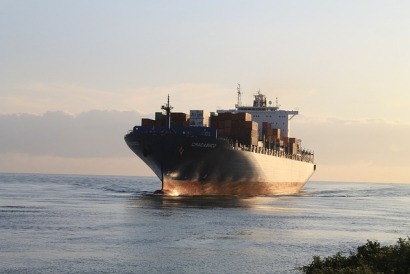
It is made up of 11 partners from different public and private entities from Spain, France, Ireland, and Portugal, which are part of the transport and bioenergy ecosystem.
Contributing to net zero emission objective by 2050
The European Green Pact aims to reduce emissions by 50% compared to 1990 levels by 2030, and one of the areas that is attracting attention for its transformative potential is the maritime sector, as a crossing point for people, goods, and different modes of transport. Although ports are best known as interconnection points within the maritime transport network, they are also multimodal nodes, industrial areas and commercial sites that play a key role in this decarbonization process.
Ports can act as drivers of this energy transition from two points: as promoters of a more sustainable port activity and maritime transport, and as a link in the maritime-port clusters, where ports interact with agents from the different value chains, with common objectives and interests. For all these reasons, the Atlantic ports are positioned as an excellent testing platform that will allow the application of the results in the different sectors, thus strengthening their competitiveness and decarbonization.
Making green hydrogen a credible solution
The HYDEA project was created to accelerate the development and application of technologies based on the use of green hydrogen as an energy alternative in different types of fleets and vehicles, thus taking another step forward in research for the development and application of alternatives to current energy sources. Green hydrogen comes from renewable energies with zero CO2 emissions, which makes it a clean, sustainable fuel with a zero-pollution index, making it a key agent for the decarbonization of society in general, and ports in particular.
The main objective of the project is to assess, develop and promote the use of technologies based on green hydrogen from renewables like marine energy in Atlantic Area ports. This is articulated through the achievement of several specific objectives, which will address the following challenges:
A powerful transnational cooperation across Atlantic Area
The HYDEA project consortium, funded by the Interreg Atlantic Area 2021-2027 program, brings together entities from Spain, France, Portugal and Ireland under the leadership of the EnergyLab Technology Center, with the active participation of 4 ports - Port Authority of Vigo, Port Authority of Seville, Brest Brittany Port Company and Administration of the Ports of Douro, Leixões and Viana do Castelo-, 1 technology center - France Energies Marines -, 2 universities - University of Galway and University of Porto - and 3 companies - Hive Hydrogen, Automotive Synergy Evolution, and Energy Observer Developments -. All of them will also have the support of 13 associated entities: 7 Atlantic port authorities and 6 entities promoting clean energies.
Furthermore, it is worth highlighting the creation of the HYDEA Community, which will be coordinated by the Port Authority of Vigo, and which will integrate entities from the entire hydrogen value chain from the tertiary sector, academics or industry, as well as from the public administrations. This Community aims to be an international forum for sharing experiences, good practices and, in general, disseminating the potential of hydrogen for the sustainable development of communities and for achieving the decarbonization of society in general, and of ports in particular.

